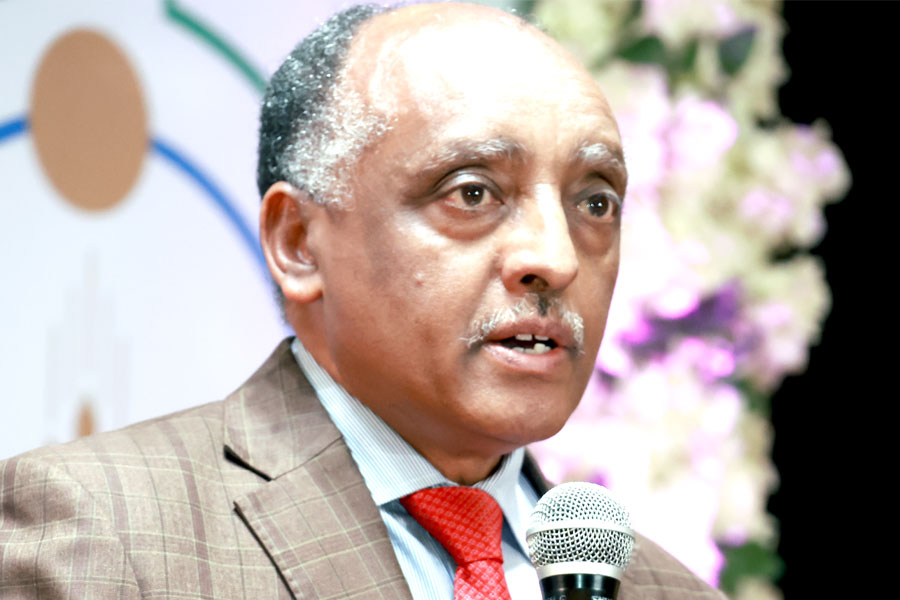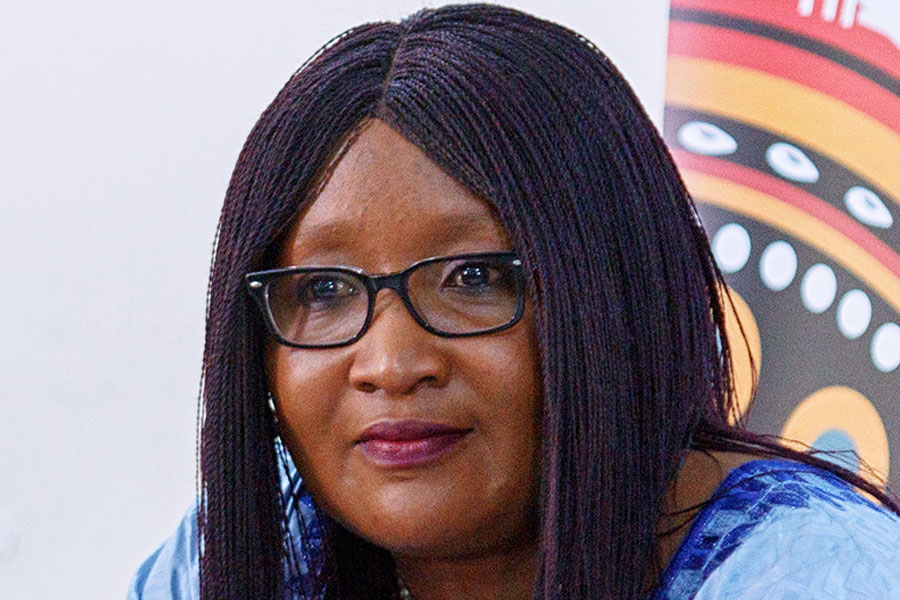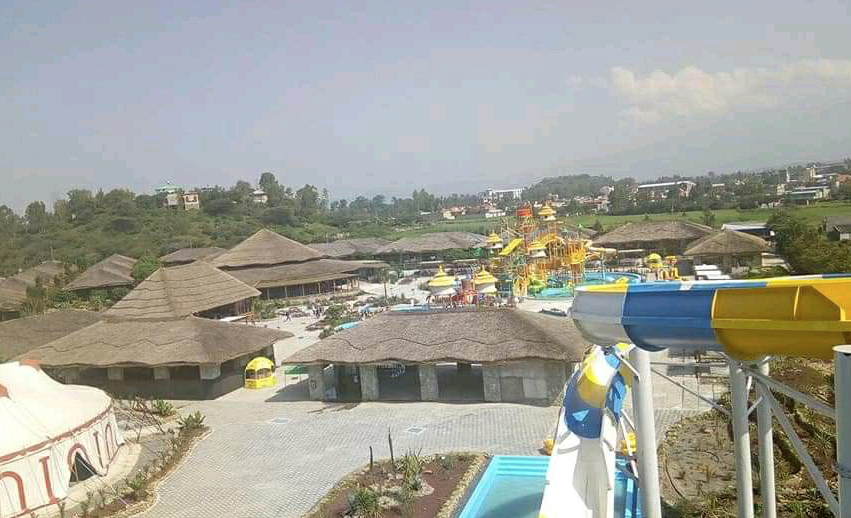
Commentaries | Jun 10,2023
Feb 24 , 2024
By Bjorn Lomborg
Too many rich-world politicians and climate campaigners forget that much of the world remains mired in poverty and hunger. Yet, rich countries are increasingly replacing their development aid with climate spending. The World Bank, whose primary goal is to help people out of poverty, has announced it will divert no less than 45pc of its funding toward climate change, redirecting 40 billion dollars annually away from poverty and hunger.
It is easy to treat climate as the world's priority for those with a comfortable life. The 16pc of the global population who live in those countries do not typically go hungry or watch loved ones die of easily treatable conditions like malaria or tuberculosis. Most are well-educated, and their average incomes are in the league of what was once reserved for royalty.
Much of the rest of the world, however, still struggles. Across poorer countries, five million children die each year before their fifth birthday, and almost a billion people do not get enough to eat. More than two billion people have to cook and keep warm with polluting fuels such as dung and wood, shortening their lifespans. Although most young kids now attend school, low educational quality means most children in low- and lower-middle-income countries will remain functionally illiterate.
Poor countries desperately need more access to the cheap and plentiful energy that previously allowed rich nations to develop. The lack of access to energy hampers industrialisation, growth, and opportunity. In Africa, electricity is so scarce that the total electricity available per person is much less than what a single refrigerator in the rich world uses.
Raiding development funding for climate spending is an abysmal decision. Climate change is real, but the data does not support using scarce development resources to tackle it ahead of poverty-related ills.
Climate activists argue that poverty and climate change are inextricably linked, and we should do both. But we actually do not. Research repeatedly shows that spending on core development priorities helps much more and much faster per dollar spent than putting funds toward climate. That is because real development investments — whether fighting malaria, boosting the health of women and girls, promoting e-learning, or increasing agricultural productivity — can dramatically change lives for the better and make poorer countries better off in so many ways, including making them more resilient against natural disasters and any additional, climate-related disasters.
By contrast, even drastic carbon emission reductions would not deliver noticeably different outcomes for a generation or more. While spending on adaptation to build resilience in poor countries is slightly more effective than cutting emissions, both are far insufficient compared to investing in the best development policies.
Climate change is not the end of the world. Indeed, a UN panel shows scenarios that the world will dramatically improve over the century and that — despite panicked campaigning — climate change will merely slow that progress slightly. Last year, the world saw its largest cereal production ever. With incomes and yields continuing to climb, hunger will fall dramatically over the coming decades. Climate change is forecast to merely make that hunger decline a smidgen slower.
Likewise, the panel expects global average income to increase 3.5-fold by 2100, absent climate change. Even if we do little against climate, William Nordhaus (Prof.), the only climate economist to win the Nobel Prize, shows that this would merely slow progress slightly — by 2100 incomes would still have risen 3.34 times.
We should tackle climate change smartly through rich country governments making sorely-needed, long-term investments in green energy research and development to innovate low-cost solutions that deliver reliable energy at prices everyone can afford. Much of the poorer world primarily wants to pull people out of poverty and improve their quality of life with cheap and reliable energy. Yet rich countries refused to fund anything remotely fossil fuel-related.
This smacks of hypocrisy, because rich countries themselves get almost four-fifths of their energy from fossil fuels, largely because of the unreliability and storage problems of solar and wind energy. Yet they arrogantly castigate poor countries for aspiring to achieve more energy access and suggest the poor should somehow 'skip ahead' to intermittent solar and wind, with unreliability that the rich world does not accept for its own needs.
Climate change ranks far down the priority list of people living in poorer countries. A large survey of leaders in low- and middle-income countries similarly reveals education, employment, peace, and health are at the top of their development priorities, with climate coming 12th out of 16 issues. The poorer half of the world certainly deserves opportunities to better their lives. But as politicians are asking for more money, ostensibly to help the world's poorest, we should demand it goes to efficient development projects that actually save and transform lives, not to feel-good, inefficient climate programs.
PUBLISHED ON
Feb 24,2024 [ VOL
24 , NO
1243]


Commentaries | Jun 10,2023

Commentaries | Nov 26,2022


Viewpoints | Jul 20,2024

My Opinion | Jul 07,2024

Agenda | Dec 05,2018

Fortune News | Apr 20,2019

Exclusive Interviews | Aug 19,2023

Fortune News | Aug 31,2019

Viewpoints | Nov 23,2024

Photo Gallery | 180861 Views | May 06,2019

Photo Gallery | 171055 Views | Apr 26,2019

Photo Gallery | 162181 Views | Oct 06,2021

My Opinion | 137334 Views | Aug 14,2021

Dec 22 , 2024 . By TIZITA SHEWAFERAW
Charged with transforming colossal state-owned enterprises into modern and competitiv...

Aug 18 , 2024 . By AKSAH ITALO
Although predictable Yonas Zerihun's job in the ride-hailing service is not immune to...

Jul 28 , 2024 . By TIZITA SHEWAFERAW
Unhabitual, perhaps too many, Samuel Gebreyohannes, 38, used to occasionally enjoy a couple of beers at breakfast. However, he recently swit...

Jul 13 , 2024 . By AKSAH ITALO
Investors who rely on tractors, trucks, and field vehicles for commuting, transporting commodities, and f...

Nov 1 , 2025
The National Bank of Ethiopia (NBE) issued a statement two weeks ago that appeared to...

Oct 25 , 2025
The regulatory machinery is on overdrive. In only two years, no fewer than 35 new pro...

Oct 18 , 2025
The political establishment, notably the ruling party and its top brass, has become p...

Oct 11 , 2025
Ladislas Farago, a roving Associated Press (AP) correspondent, arrived in Ethiopia in...

Nov 2 , 2025
The National Bank of Ethiopia (NBE) has scrapped the credit-growth ceiling that had s...

Nov 2 , 2025 . By SURAFEL MULUGETA
The burgeoning data mining industry is struggling with mounting concerns following th...

Nov 2 , 2025 . By YITBAREK GETACHEW
Berhan Bank has chosen a different route in its pursuit of a new headquarters, opting for a transitional building instea...

Nov 2 , 2025 . By BEZAWIT HULUAGER
Nib International Bank S.C. has found itself at the epicentre of a severe governance...